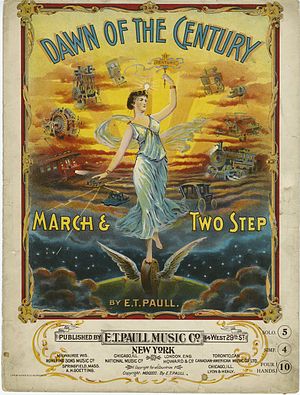Turn of the century

Turn of the century, in its broadest sense, refers to the transition from one century to another. The term is most often used to indicate a non-specific time period either before or after the beginning of a century - for instance, if a statement describes an event as taking place "at the turn of the 18th century", this means it took place somewhere around the year 1701.
Where no specific century is stated, the term usually refers to the transition from the 19th century into the 20th century (1890-1914): a novel referring to "turn of the century England," indicates England, circa 1900. According to the Chicago Manual of Style, however, there is no common agreement about the term. That is, "turn of the nineteenth century" could also mean the turn from the nineteenth into the twentieth century. As such, they recommend using the phrase "turn of the century" and making clear which transition you are talking about.[1]
The period around the turn of the first century of a millennium can also be called the "turn of the millennium". For example, the period 1981-2020 can be described both as the "turn of the 21st century" and the "turn of the third millennium".
See also
References